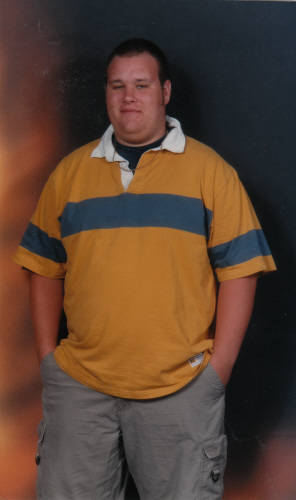
Paragraphs 13 & 14 read: "Hagar said at an earlier hearing he plans to base his defense on the fact that Schmidkunz did what he is alleged to have done because of the medication Schmidkunz had been taking."
"It was revealed Friday that Schmidkunz had taken the mood elevator drug Zoloft at the direction of a physician for 18 days and then was off the medication for four days prior to the shooting."
http://www.minotdailynews.com/news/story/1120202004_new01evidence20.asp
Evidence is a hot topic
By KEN CRITES Staff Writer kcrites@ndweb.com
The Zachary Schmidkunz murder trial in Minot is only 10 days away and State's Attorney John Van Grinsven complained Friday he is "operating in the dark" because the defense has not presented information to him that he needs.
Schmidkunz is facing a jury trial starting on Nov. 29 in Northwest District Court. He is charged in the shooting death of Alexis Walter, 19, in the Schmidkunz family residence in northwest Minot at about 3 p.m. on Nov. 17, 2003.
Walter was killed by a single shot from a 12-gauge shotgun that struck her in the chest and neck. Her body was discovered in a basement family room by Schmidkunz's parents when they returned home from work at about 6 p.m.
Schmidkunz initially left Minot on Nov. 17 after committing the alleged crime, but later turned himself in to Jamestown police.
Van Grinsven is seeking information in a process called discovery, meaning each side (prosecution and defense) is bound to present reports and other information to the other side for use in preparing their cases.
Van Grinsven told District Judge Gerald Rustad, Williston, who is handling the case that he thinks defense attorney Richard Hagar's intention is "to get information to the prosecution at the last possible moment.
"I'm tired of operating in the dark here," Van Grinsven continued. "It's been 11 months and nothing has been presented to the state by the defense. The court has the authority to prohibit a party from presenting evidence at trial that has not been previously disclosed to the other side."
Rustad said he thought that would be "a drastic action," but admitted he, too, has felt somewhat in the dark in the case. He said he wants a chance to read the reports.
At issue are reports from doctors who examined Schmidkunz in Williston and at the Jamestown State Hospital. A written report from one psychologist is available, but the court is still awaiting an audio tape from the Jamestown interview.
Hagar bristled at Van Grinsven's statements.
"I am offended that the state's attorney thinks we are stonewalling ? we have been preparing diligently for trial," Hagar said. "We are not in any way to blame."
Hagar said he did not provide some information to the prosecution because he didn't think he would be presenting it at trial.
Hagar said at an earlier hearing he plans to base his defense on the fact that Schmidkunz did what he is alleged to have done because of the medication Schmidkunz had been taking.
It was revealed Friday that Schmidkunz had taken the mood elevator drug Zoloft at the direction of a physician for 18 days and then was off the medication for four days prior to the shooting.
Van Grinsven disputed the theory that the medication was to blame. He said an expert for the state will testify that after four days the drug would have been out of Schmidkunz's system.
Hagar said hearings are going on in Washington, D.C., now about the possible connection between taking anti-depressant drugs and teenage suicide.
"We're not talking about suicide, we're talking about homicide," Van Grinsven countered. "We're here to prove what happened on Nov. 17, 2003, in Minot, North Dakota."
Van Grinsven also complained to Rustad that the defense had presented him with a book of anecdotes from people who had reactions to drugs that a psychologist had compiled for her doctorate degree.
"Was the cause of their reactions the medicine they took or problems they had before they took the medication?" the prosecutor asked.
Rustad asked Hagar if he intended to present the psychologist at trial as an expert witness, to which Hagar replied he did.
"We could take one day without the presence of the jury to determine by examination and cross-examination if she qualifies as an expert witness," Rustad then said.
The judge also said Friday that he expects the trial to last two weeks. Jury selection is scheduled to begin at 9 a.m. on Nov. 29.

Zach Schmidkunz